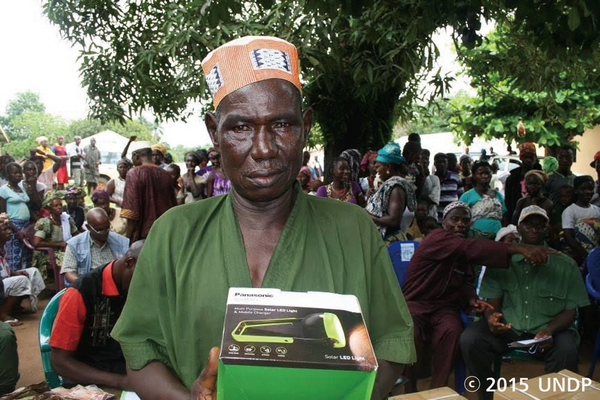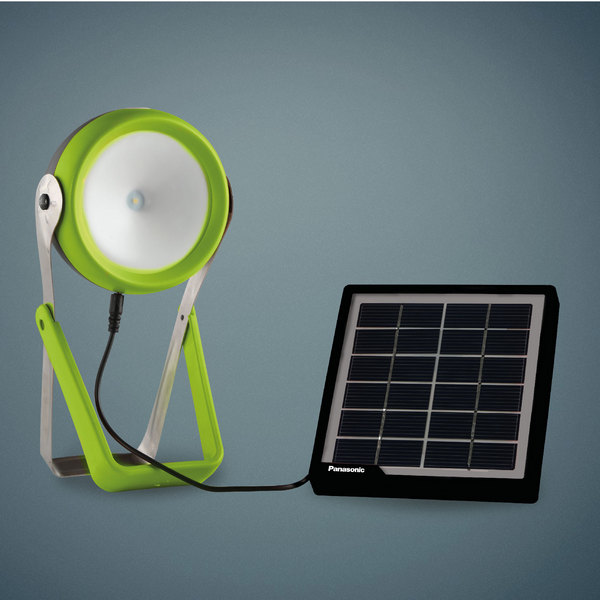Panasonic Corporation announced that it donated 3,000 solar lanterns to United Nations Development Program (UNDP) for use in Ebola affected regions. These lanterns have started to be distributed in 3 West African countries (Guinea, Liberia, and Sierra Leone). Panasonic first donated 240 lanterns back in December 2014.
Controlling the outbreak of Ebola Hemorrhagic Fever is a matter of global importance. In order to contribute to the quick recovery of patients, and more importantly to prevent its outbreak, rapid and efficient medical treatment is needed. This also means that treatment during the night is also crucial, but many affected regions do not have access to electricity, and because all items that belonged to affected patients must be destroyed, they have to look for new sources of light.
 |
|
An African man from Ebola affected region holding a Panasonic donated solar lantern distributed by UNDP. (Panasonic/LEDinside) |
The donated solar lanterns are made of solar panels, storage batteries, and LEDs, so they can store the energy generated during the day, which can then be used to power the LED light for 6 to 8 hours during the night.
These solar lanterns will be distributed to medical personnel and community workers, as well as to patients who survived, who lost their jobs and everything they owned, and to their families, especially to people who are most vulnerable, like women, children, and people with disabilities. As the only source of bright light, these lanterns will give them additional peace of mind and security.
 |
|
Solar LED lantern. (Panasonic/LEDinside) |
UNDP has also released a statement with respect to Panasonic's donation of solar lanterns.
http://www.africa.undp.org/content/rba/en/home/presscenter/pressreleases/2015/07/15/undp-and-panasonic-step-up-their-support-for-ebola-affected-communities/
As part of our corporate citizenship activities (social contribution activities), Panasonic has launched the “100 Thousand Solar Lanterns Project*,” and has contributed to alleviating social issues faced in emerging/developing countries. The donation of these lanterns to Ebola affected regions is also part of such efforts.
*By 2018, our 100th anniversary, Panasonic will donate 100,000 solar lanterns to NPOs, NGOs, humanitarian assistance institutions, and other international organizations to help address social issues in emerging/developing countries.
As part of our efforts to pursue "A Better Life, A Better World" for people all across the world, Panasonic will continue the "100 Thousand Solar Lanterns Project" to contribute to sustainable development.













